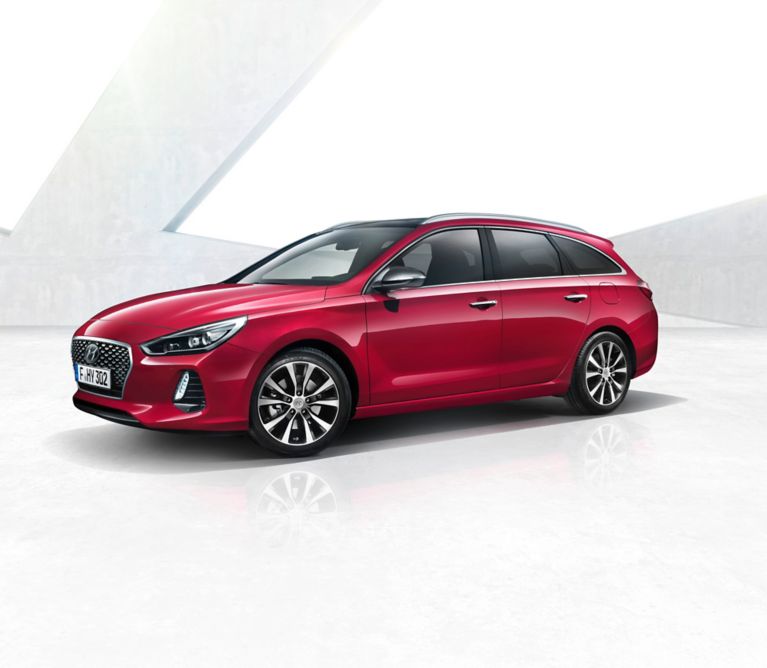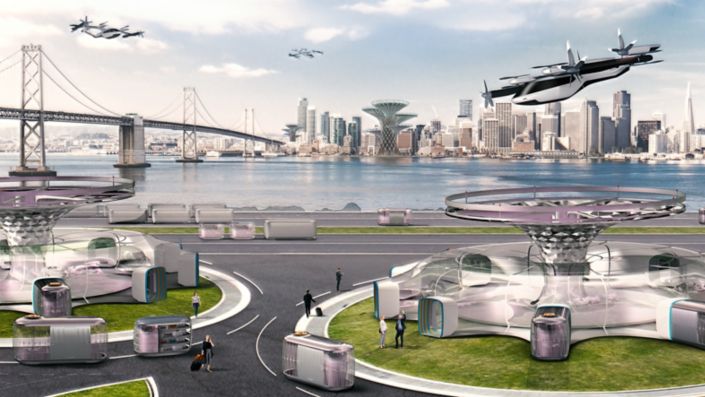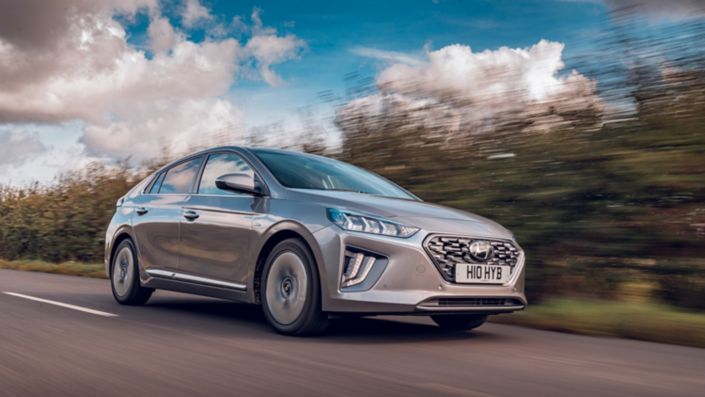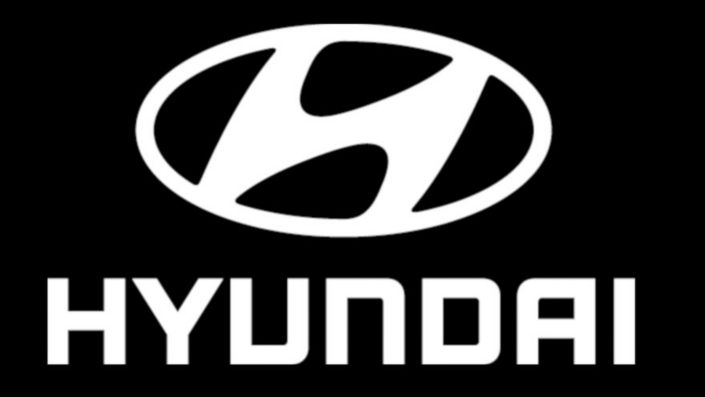- The New Generation i30 Wagon combines timeless and elegant design of i30 with the versatile form and function of a wagon
- The new wagon body style is part of the i30 range representing the broadest range of cars in the C-segment in Europe. The i30 Wagon offers Hyundai SmartSense, the best-in-class safety technologies, and smart connectivity features
The New Generation Hyundai i30 Wagon is the most spacious model in the i30 range. It maintains the timeless design of its five-door sibling, adding elegance and versatility in its body style.
The i30 Wagon is available in Europe since summer 2017.
Designed, developed, tested and manufactured in Europe, the New Generation Hyundai i30 is Hyundai Motor’s DNA car in Europe. The i30 was created as the new people’s car. Consisting of four body types, each with a unique character, , the i30 range provides the broadest diversity in the compact car segment. Our i30 Wagon offers elegance and versatility for everyone.
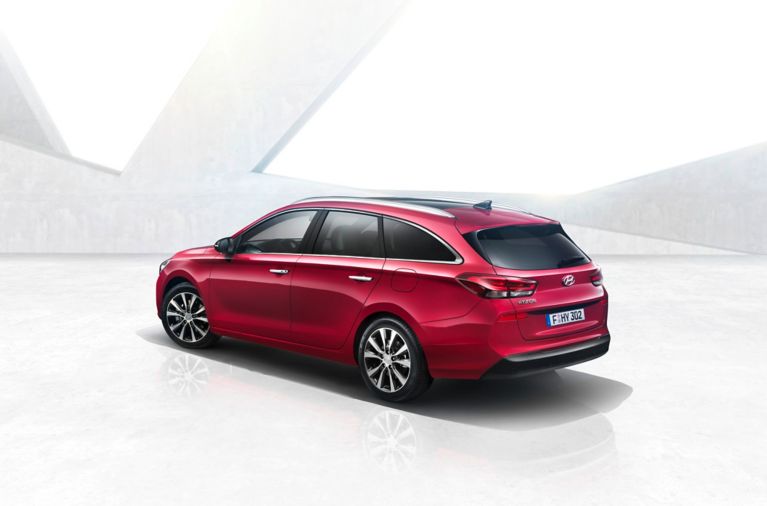
The highlights of the New Generation Hyundai i30 Wagon
The New Generation i30 Wagon speaks the language of the i30 range in terms of design, and it carries the new Hyundai identity - the Cascading Grille. The tapering roofline and dynamic proportions give the Wagon an elegant silhouette. The sleek and dynamic profile is further emphasised by a rich chrome frame surrounding the side windows.”
In combination with the full-LED headlamps and the vertical LED daytime running lights, the New Generation i30 Wagon has a strong visual presence.
The i30 Wagon’s sleek design does not compromise boot space: with 602 litres of space (VDA 211) and 1,650 litres (VDA 214) with the seats folded, it has one of the biggest boots in the segment. Versatility is further enhanced by the additional storage space beneath the boot floor with several compartments.
The overall length of the wagon is 4,585 mm (5-door version: 4,340 mm) and the height is 1,465 mm (1,475 mm with roof rack). The overall width of 1,795 mm and wheelbase of 2,650 mm are the same as in the five-door version.
High versatility with one of the biggest boots in the segment
The i30 Wagon’s sleek design does not compromise boot space: with 602 litres of space (VDA 211) and 1,650 litres (VDA 214) with the seats folded, it has one of the biggest boots in the segment. Versatility is further enhanced by the additional storage space beneath the boot floor with several compartments.
The overall length of the wagon is 4,585 mm (5-door version: 4,340 mm) and the height is 1,465 mm (1,475 mm with roof rack). The overall width of 1,795 mm and wheelbase of 2,650 mm are the same as in the five-door version.
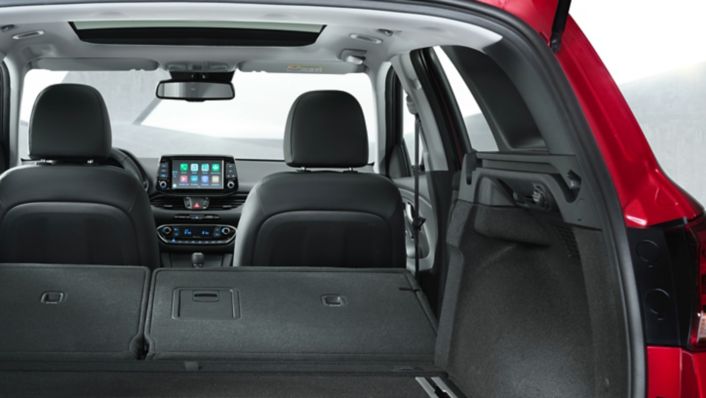
Best-in-class standard safety package
Hyundai Motor democratises technology by offering the latest active safety and connectivity features for the New Generation i30 Wagon. Equipped with Hyundai SmartSense, the i30 offers best-in-class standard active safety and driving assistance technology, with Forward Collision-Avoidance Assist, Driver Attention Warning, High Beam Assist and Lane Keeping Assist always on board.
Using camera sensors, the Forward Collision-Avoidance Assist (FCA) fitted in the i30 Wagon operates in three stages. After initially warning the driver visually and acoustically, it then controls the brake according to the collision danger stage and applies maximum braking force to avoid a collision or minimise damage when a collision is unavoidable. The optional pedestrian recognition uses a front radar and avoids or mitigates the consequence of an impact with a pedestrian.
Driver Attention Warning (DAW) is a driver protection feature that helps monitor driving patterns in order to detect reckless or fatigued driving and prevent potential accidents.
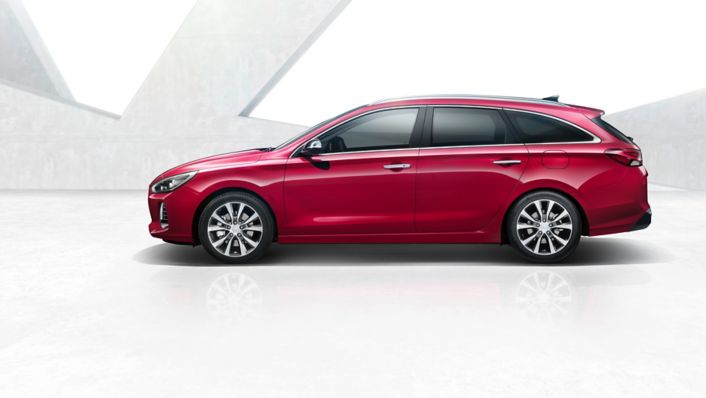
Smart Cruise Control with Stop & Go (SCC w/ S&G) keeps a constant speed and distance from the vehicle ahead by automatically accelerating and braking up to 180 km/h. If the traffic comes to a halt, the Stop & Go system applies the brake until the car comes to a standstill and accelerates to the desired speed as soon as the road is clear.
The Blind-Spot Collision Warning (BCW) monitors the rear corners and, if another vehicle is detected, a visual alert appears on the exterior mirrors.
The Rear Cross-Traffic Collision Warning (RCCW) system reduces the risk of collision with approaching traffic when reversing out of narrow areas with low visibility by alerting the driver visually and acoustically.
The Lane Keeping Assist (LKA) alerts the driver about unsafe movements at speeds over 60 km/h by sensing the car’s position. It warns the driver acoustically and visually before inducing corrective steering to guide the driver back to a safe position.
The Intelligent Speed Limit Warning (ISLW) identifies road speed signs and displays the speed limit in real time. The information is shown both in the navigation system display as well as in the TFT cluster.
A High Beam Assist (HBA) detects both oncoming vehicles and vehicles in the same lane ahead at night and changes to low-beam lights as appropriate, thereby reducing blinding effects on other drivers. Whenever there are no vehicles detected, HBA automatically re-activates the high beams, maximising the driver’s range of vision.
The Blind-Spot Collision Warning (BCW) monitors the rear corners and, if another vehicle is detected, a visual alert appears on the exterior mirrors.
The Rear Cross-Traffic Collision Warning (RCCW) system reduces the risk of collision with approaching traffic when reversing out of narrow areas with low visibility by alerting the driver visually and acoustically.
The Lane Keeping Assist (LKA) alerts the driver about unsafe movements at speeds over 60 km/h by sensing the car’s position. It warns the driver acoustically and visually before inducing corrective steering to guide the driver back to a safe position.
The Intelligent Speed Limit Warning (ISLW) identifies road speed signs and displays the speed limit in real time. The information is shown both in the navigation system display as well as in the TFT cluster.
A High Beam Assist (HBA) detects both oncoming vehicles and vehicles in the same lane ahead at night and changes to low-beam lights as appropriate, thereby reducing blinding effects on other drivers. Whenever there are no vehicles detected, HBA automatically re-activates the high beams, maximising the driver’s range of vision.
Smart and connected
The i30 Wagon offers customers a spacious and elegant interior with a horizontal layout and free-floating screen for the infotainment system. The eight-inch touch screen of the new-generation navigation system offers state-of-the-art connectivity features such as Apple CarPlay, Android Auto and LIVE Services. A wireless charging system for smartphones with the Qi standard is available as well. As an alternative, customers can choose between different audio options, including the audio system with a five-inch capacitive LCD touch screen with integrated dynamic rear-view camera, Bluetooth connectivity and My Music functionality.
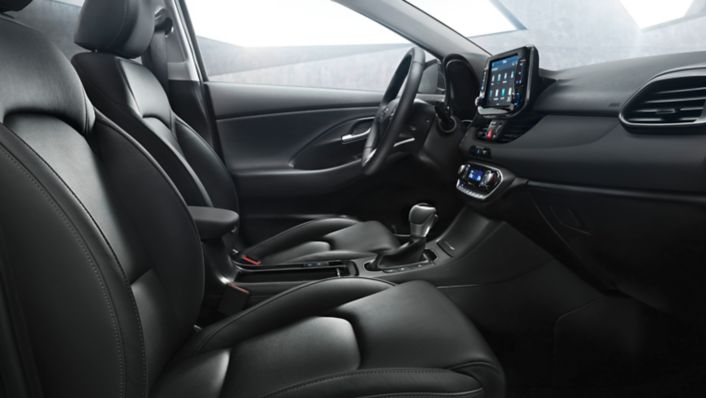
Dynamic and efficient powertrains
The powertrain line-up of the i30 Wagon consists of downsized turbocharged engines that enhance efficiency and responsiveness. In the gasoline range, customers can choose from three engines. The i30 Wagon is available with Hyundai’s turbocharged four-cylinder petrol engine, the 1.4 T-GDI, which delivers a maximum power of 140 PS (fuel consumption combined: 5.5 – 5.0 l/100 km; urban: 6.7 – 6.0 l/100 km; extra-urban: 5.0 - 4.6 l/100 km; CO2 emissions combined: 129 - 114 g/km*). The new three-cylinder 1.0 T-GDI delivers maximum power of 120 PS (fuel consumption combined: 5.2 – 4.9 l/100 km; urban: 6.0 – 5.9 l/100 km; extra-urban: 4.6 - 4.4 l/100 km; CO2 emissions combined: 120 - 115 g/km*).
The 1.6-litre turbo diesel engine is available with two power outputs:110 PS (fuel consumption combined: 4.3 – 3.7 l/100 km; urban: 4.7 – 4.1 l/100 km; extra-urban: 4.1 – 3.5 l/100 km; CO2 emissions combined: 112 - 96 g/km*) or 136 PS (fuel consumption combined: 4.3 – 3.7 l/100 km; urban: 4.7 – 4.2 l/100 km; extra-urban: 4.1 – 3.6 l/100 km; CO2 emissions combined: 112 - 99 g/km*).
Driving dynamics
The engineers of Hyundai Motor Europe’s Technical Centre in Germany enhanced the driving dynamics of the New Generation i30 in a rigorous testing programme throughout Europe and on the famous Nürburgring Nordschleife. The highly rigid and light body with 53% Advanced High Strength Steel provides the basis for good ride and handling characteristics, and the fact that it is combined with 10% more direct steering and a newly developed chassis means the driver can enjoy dynamic driving together with high levels of comfort.
Made in Europe
Designed in Hyundai Motor Europe’s Technical Centre in Rüsselsheim, produced in Nošovice, Czech Republic, and tested on the Nürburgring, the third-generation i30 range is built on the infrastructure that Hyundai Motor has developed over the last 25 years in Europe. It aims to continue the success of the two previous generations of i30, which have sold more than 800,000 cars in Europe since 2008.
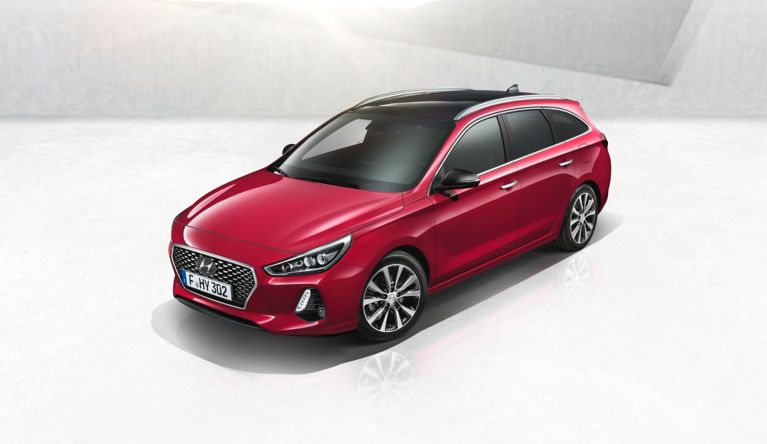
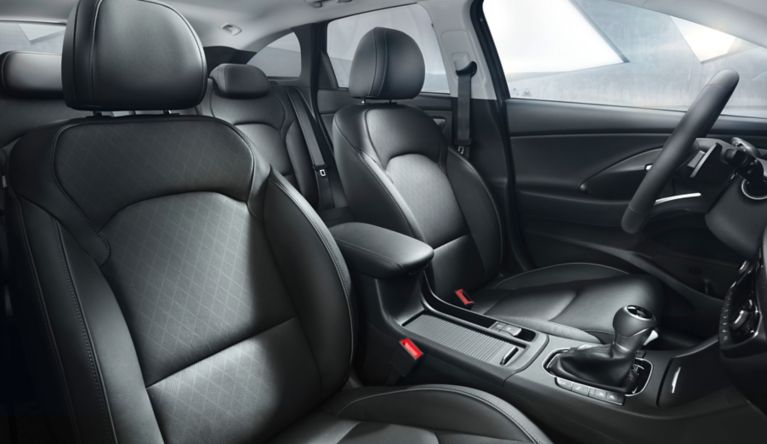
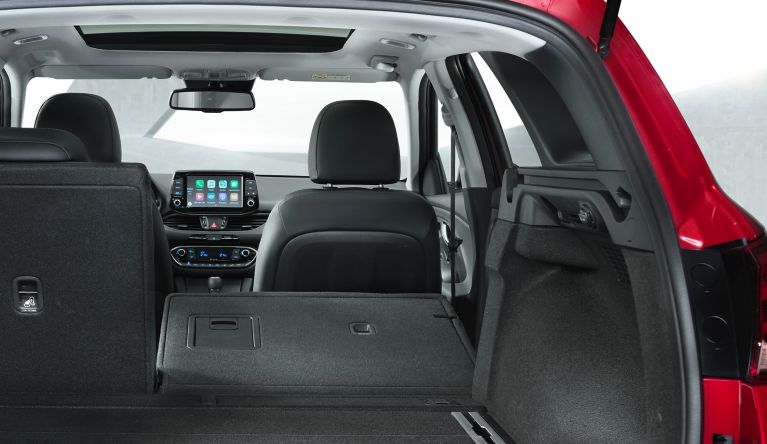
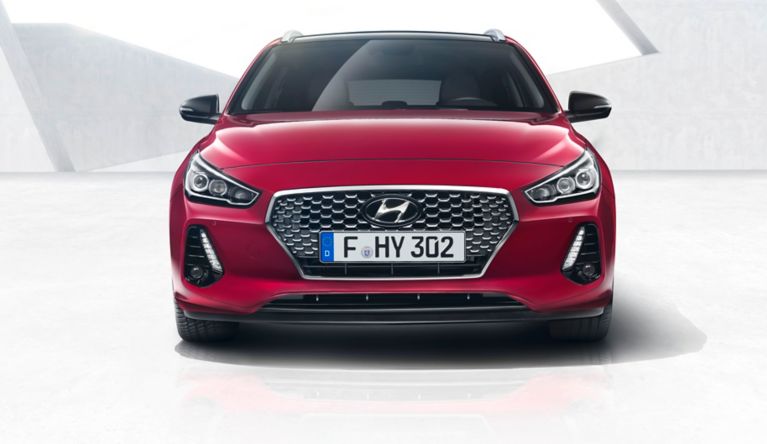
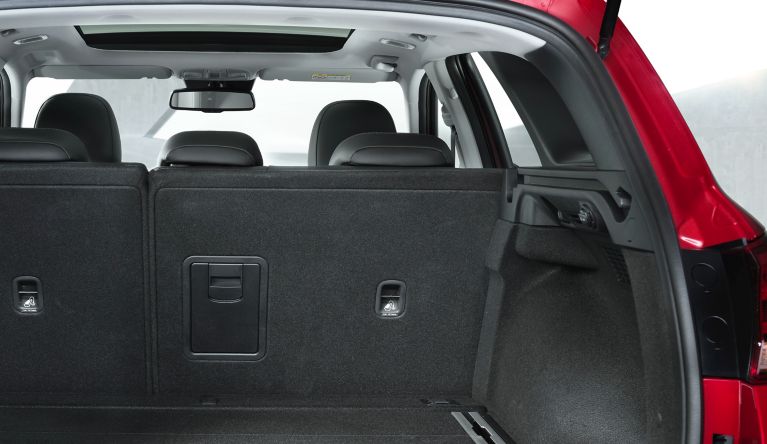
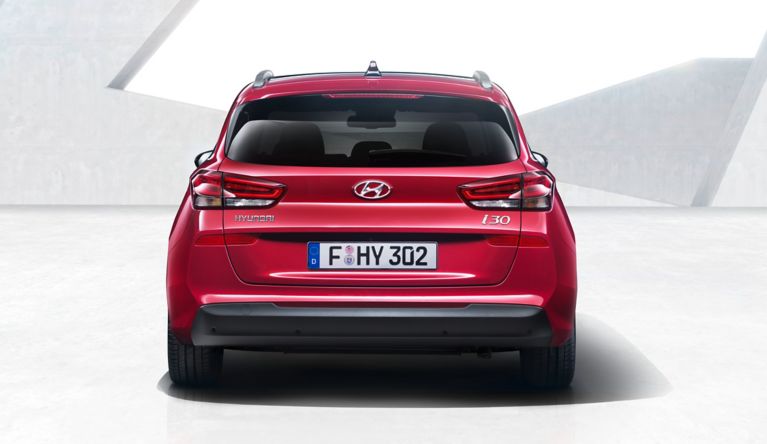
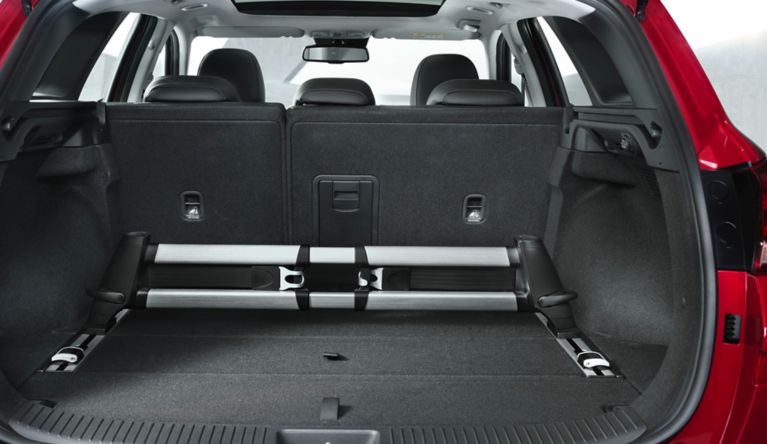
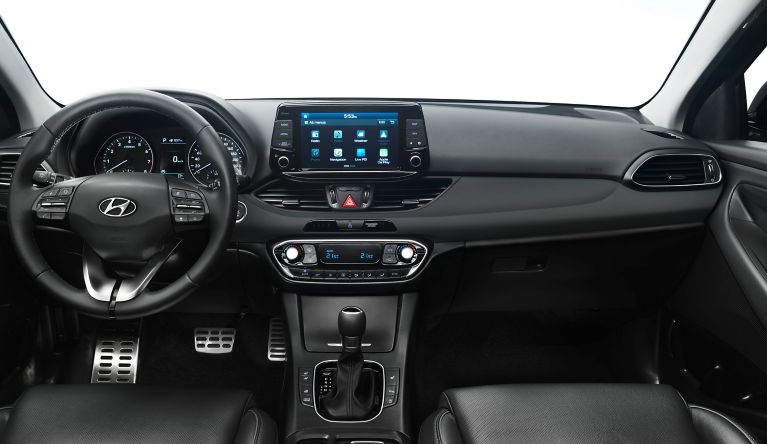
Consumption Data**
Gasoline Engines
1.4 MPI (100 PS): Fuel consumption combined: 5.8 - 5.6 l/100 km; urban: 7.0 - 6.9 l/100 km; extra-urban: 5.1 – 4.9 l/100 km; CO2 emissions combined: 136 - 131 g/km
1.0 T-GDi (120 PS): Fuel consumption combined: 5.2 - 4.9 l/100 km; urban: 6.0 - 5.9 l/100 km; extra-urban: 4.6 - 4.4 l/100 km; CO2 emissions combined: 120 - 115 g/km
1.4 T-GDi (140 PS): Fuel consumption combined: 5.5 – 5.0 l/100 km; urban: 6.7 – 6.0 l/100 km; extra-urban: 5.0 - 4.6 l/100 km; CO2 emissions combined: 129 - 114 g/km
Diesel Engines
1.6 CRDi (110 PS): Fuel consumption combined: 4.3 – 3.7 l/100 km; urban: 4.7 – 4.1 l/100 km; extra-urban: 4.1 – 3.5 l/100 km; CO2 emissions combined: 112 - 96 g/km
1.6 CRDi (136 PS): Fuel consumption combined: 4.3 - 3.7 l/100 km; urban: 4.7 – 4.2 l/100 km; extra-urban: 4.1 – 3.6 l/100 km; CO2 emissions combined: 112 - 99 g/km
* Values are tentative and not homologated yet, hence subject to changes.
** Depending on trim and tyre specifications
** Depending on trim and tyre specifications

